Focus:
- Research and modeling of thermal runaway and thermal propagation
- Causes of safety-critical states in lithium-ion cells
- Diagnostic algorithms for early fault detection
- Development of active safety mearsures in the event of a fault
Summary:
Thermal runaway is the condition of a lithium-ion cell in which more heat is generated within the cell than can be dissipated. This leads to a rapid rise in temperature, accompanied by gas development, flames and devastating consequences for the environment. In battery systems, the heat generated triggers thermal runaway into neighboring cells, which is known as thermal propagation. A precise understanding of the processes and effective ways to reduce the risk are crucial for the development of battery systems with maximum safety and customer acceptance.
Research focus and application
As an application-oriented university, we see ourselves as a link between theory and practice to make the battery system of tomorrow safer. In this project, we focus on methods for mitigating, preventing and detecting thermal runaway and its propagation. A central aspect is the comprehensive understanding of the development of faults and the behavior during thermal runaway and the subsequent propagation. The knowledge gained flows into the development of innovative processes, including those based on artificial intelligence, in order to diagnose faults at an early stage. In the event of fault detection, we rely on active safety strategies that can significantly improve safety, unlike conventional battery systems. The following diagram provides an overview of all research topics:
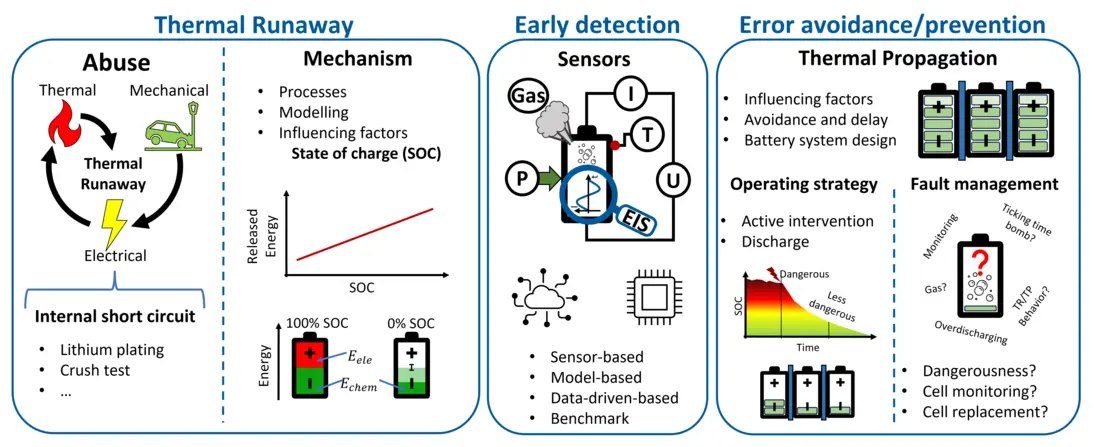
If you are interested in our work, because you are researching battery safety yourself or would like to increase the safety of your battery system, you are welcome to contact us.
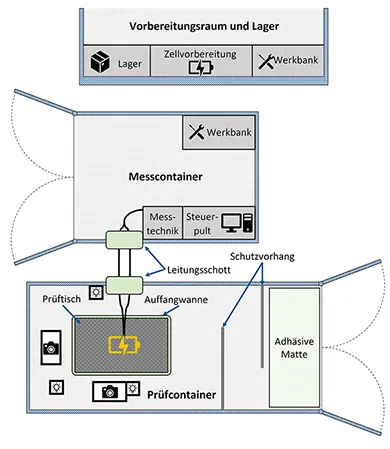
Abuse possibilities
- Thermal Abuse
- Overheating
- Electrical Abuse
- Overcharging
- Overdischarging
- Short Circuit
- Mechanical Abuse
- Nail Penetration
- Deformation Tests
Infrastructure
- Test and measurement containers for destructive testing of battery cells and packs
- Measurement technology for current, voltage and temperature measurement
- Image and video recording (thermal imaging, high-speed recording in FHD and action cams)
- Electronic load up to 1890 A
- Electronic source up to 60 A
- Linear motor (1.7 kN up to v > 50 mm/s)
Contact
Alexander Baumann, M.Sc.
Phone: +49 841 9348-6494
E-Mail: Alexander.Baumann@thi.de
Michael Theiler, M.Sc.
Phone: +49 841 9348-6465
E-Mail: Michael.Theiler@thi.de

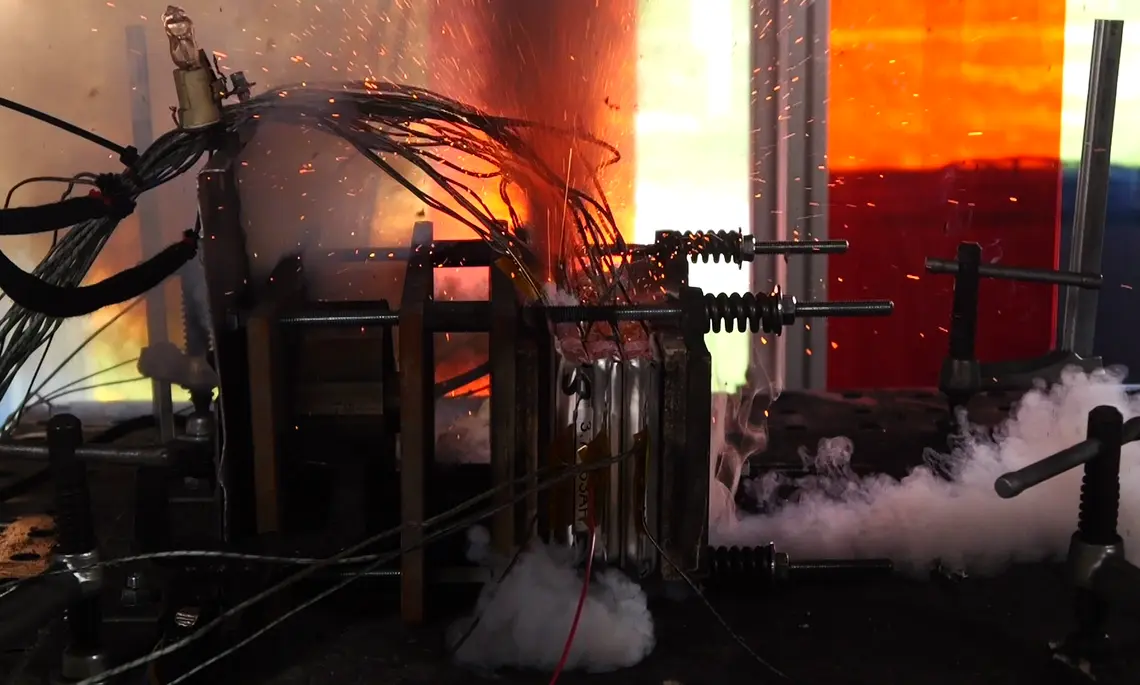
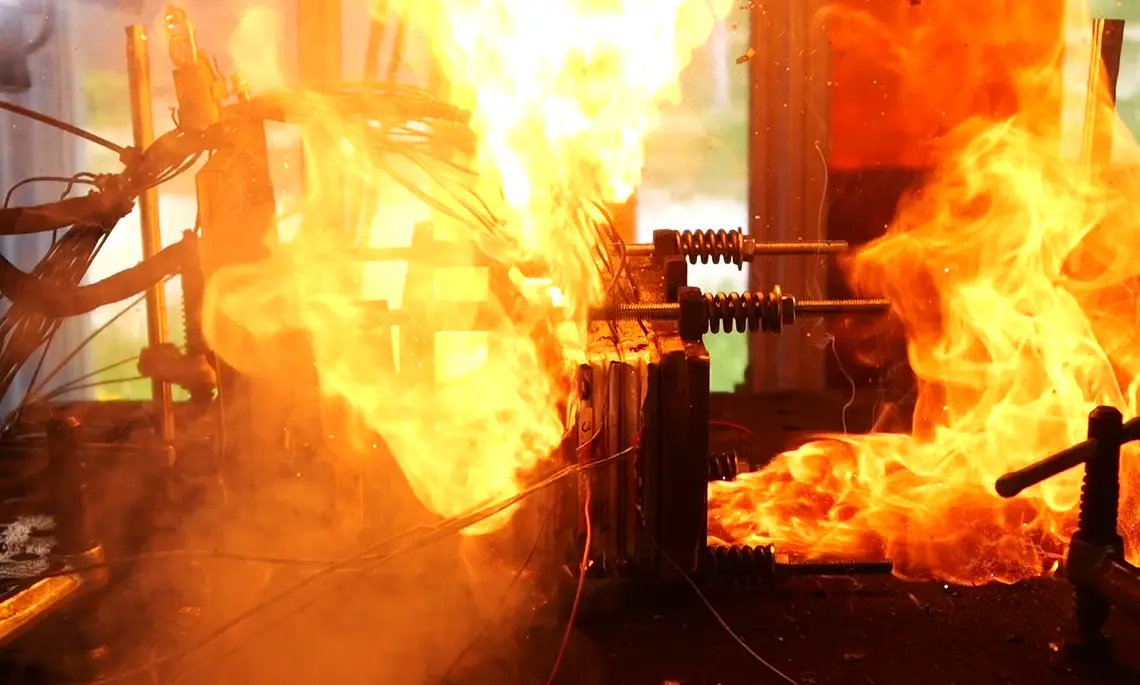
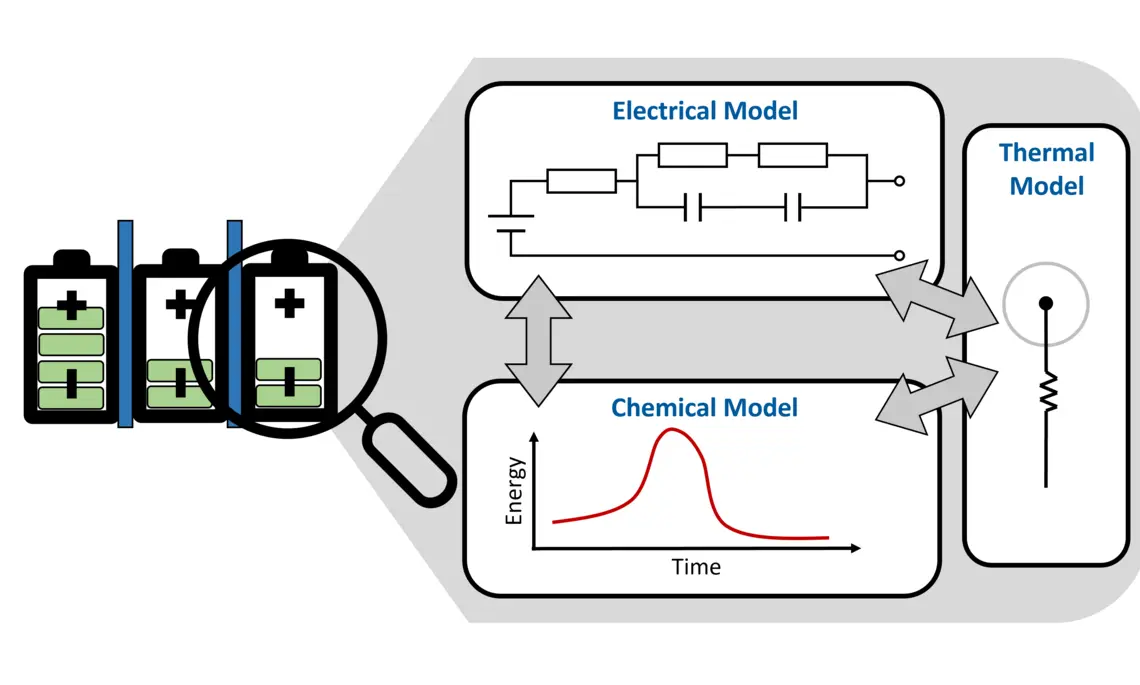
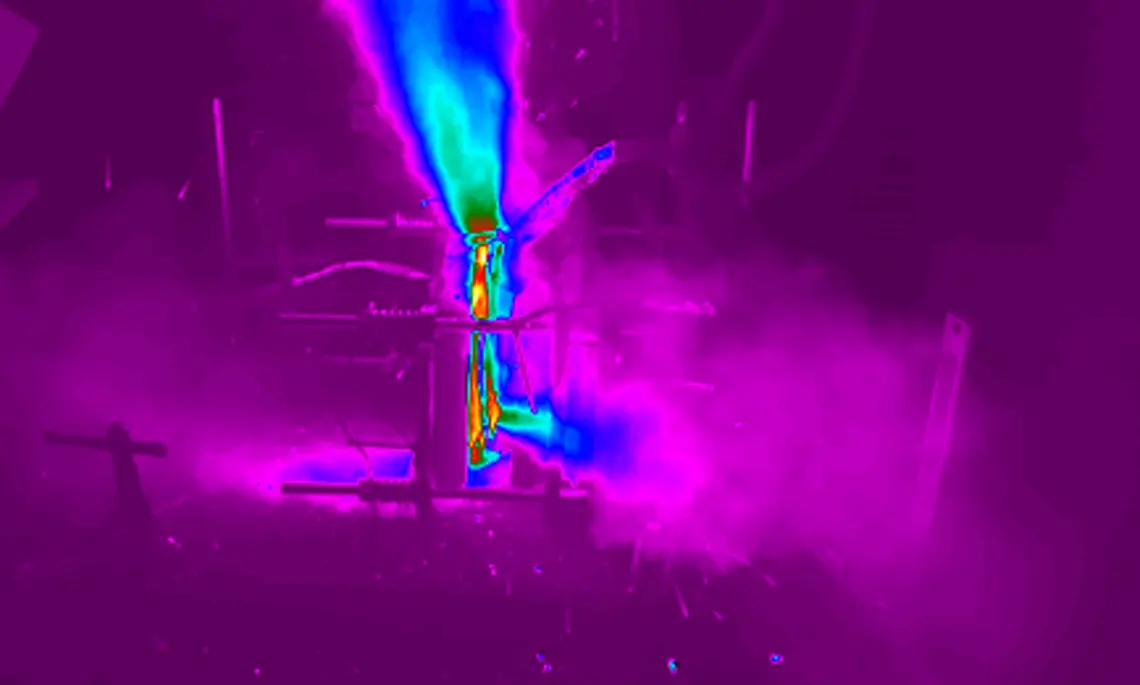


![[Translate to English:] Logo Akkreditierungsrat: Systemakkreditiert](/fileadmin/_processed_/2/8/csm_AR-Siegel_Systemakkreditierung_bc4ea3377d.webp)








![[Translate to English:] Logo IHK Ausbildungsbetrieb 2023](/fileadmin/_processed_/6/0/csm_IHK_Ausbildungsbetrieb_digital_2023_6850f47537.webp)


